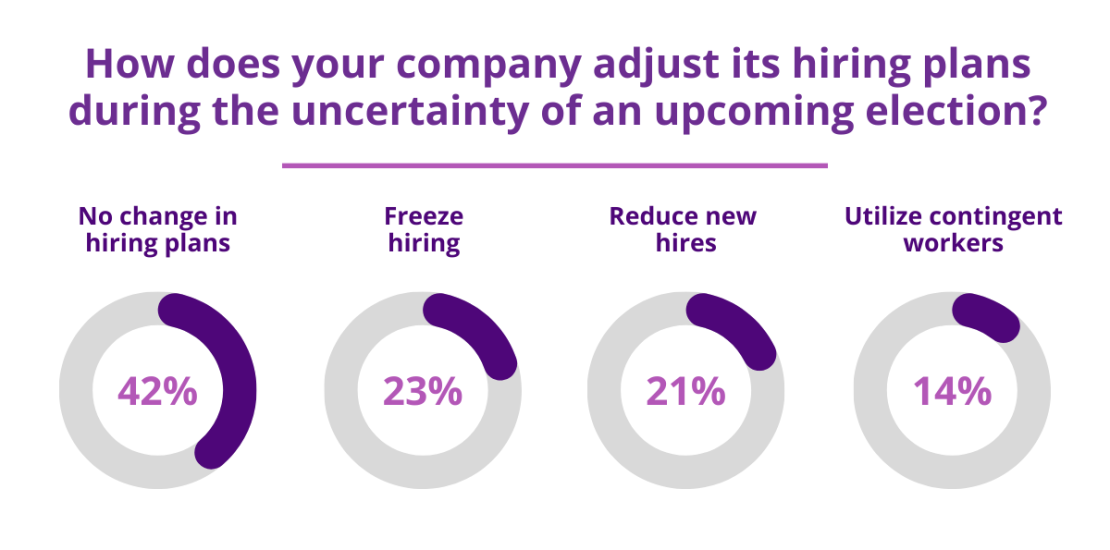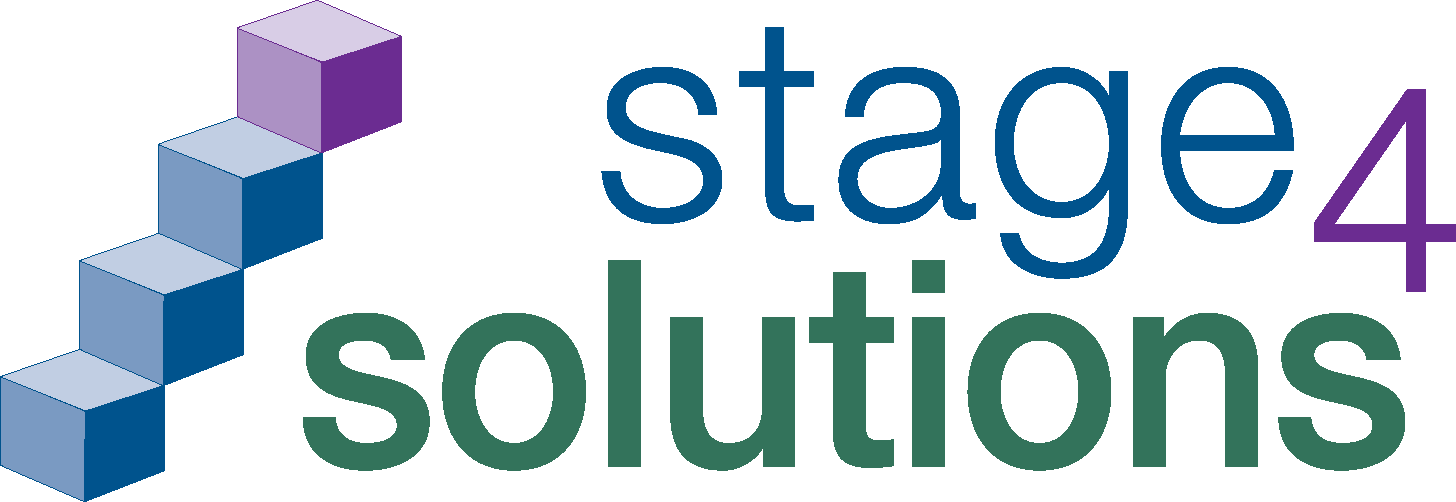The Impact of Elections on Hiring Plans
- September 23, 2024
- Posted by: Stage 4 Solutions
- Category: Blog

Elections often introduce a level of uncertainty across industries, influencing key decisions around hiring and workforce planning. As organizations brace for potential shifts in policies, regulatory changes, and fluctuations in economic confidence, many take a cautious approach when it comes to growing their teams. In this article, we explore the key uncertainties brought on by election cycles and analyze how companies adjust their hiring plans, based on the results of our recent poll.
Policy Changes
One of the primary concerns during elections is the possibility of significant policy shifts, particularly if there is a change in leadership or party control. Policies related to taxes, healthcare, labor laws, trade, and regulation can directly affect business costs, which may in turn influence hiring strategies. For instance, sectors like healthcare, energy, and finance are especially sensitive to new regulations which can drive hiring freezes or slowdowns as companies await a more stable regulatory environment.
Labor Market Regulations
Minimum wage increases, overtime rules, and unionization policies are often hot topics during elections. The outcomes of these discussions can heavily impact labor costs, prompting businesses to either pause hiring or seek more cost-effective staffing solutions, such as contingent workers. Particularly in industries with tight margins, such as hospitality or retail, these policy changes can drive significant shifts in hiring practices.
Government Spending
Government spending priorities can shift dramatically after an election, particularly in industries that depend on public funding such as infrastructure, defense, healthcare, and education. Increases or decreases in government budgets can affect job creation in these sectors. For instance, a focus on infrastructure development could lead to a surge in hiring for construction and related industries, while cuts in healthcare spending might result in job losses or hiring freezes. Companies in such industries may delay hiring decisions until they better understand the new administration’s fiscal policies and budget allocations.
Economic Confidence
The overall economic confidence during an election cycle can fluctuate, influencing hiring decisions. If businesses and consumers are optimistic about the future, they are more likely to invest and spend, leading to an uptick in hiring. Conversely, if uncertainty looms, companies may hold back on expanding their teams. This hesitancy is often seen in consumer-driven industries such as retail and hospitality, where confidence plays a pivotal role in spending and hiring patterns.
Poll Results: Hiring Plans in Response to Election Uncertainty
Given these uncertainties, businesses often adjust their hiring strategies around election cycles. To better understand how organizations respond to this environment, we polled our community for their insights.
How does your company adjust its hiring plans during the uncertainty of an upcoming election? (single answer)
- No change in hiring plans: 42%
- Freeze hiring: 23%
- Reduce new hires: 21%
- Utilize contingent workers: 14%
Based on poll results, a significant portion of respondents (42%) are continuing with their hiring plans unaffected. This indicates that many organizations maintain stability and confidence in their growth strategies despite the uncertainties surrounding elections.
On the other hand, 23% of respondents have decided to implement a hiring freeze, reflecting the caution businesses are exercising in response to potential policy shifts and economic uncertainty. Similarly, 21% are choosing to reduce the number of new hires, indicating a more conservative approach to workforce expansion.
14% of respondents are turning to contingent workers as a flexible, risk-free solution. This suggests that while some businesses may be reluctant to make permanent hiring decisions, they still recognize the need to maintain productivity and fill critical roles during this uncertain period. Companies that utilize contingent workers can remain agile, adjusting their workforce without committing to long-term hires.
These insights highlight the varying degrees of caution businesses are exercising. While some are fully pausing their growth efforts, others are leveraging flexible staffing solutions to navigate the evolving landscape. Overall, the ability to adapt to these uncertainties is crucial for managing workforce dynamics effectively.
How Stage 4 Solutions Can Help
Election cycles create a complex hiring environment, requiring businesses to carefully weigh potential risks and rewards when planning their workforce strategies. For companies aiming to stay agile and maintain operational continuity during these uncertain times, Stage 4 Solutions continues to be the trusted interim staffing partner to address critical resource needs. As companies navigate the evolving landscape, having the right talent at the right time is essential for staying competitive. Let us help you ensure your business remains resilient and adaptable.

